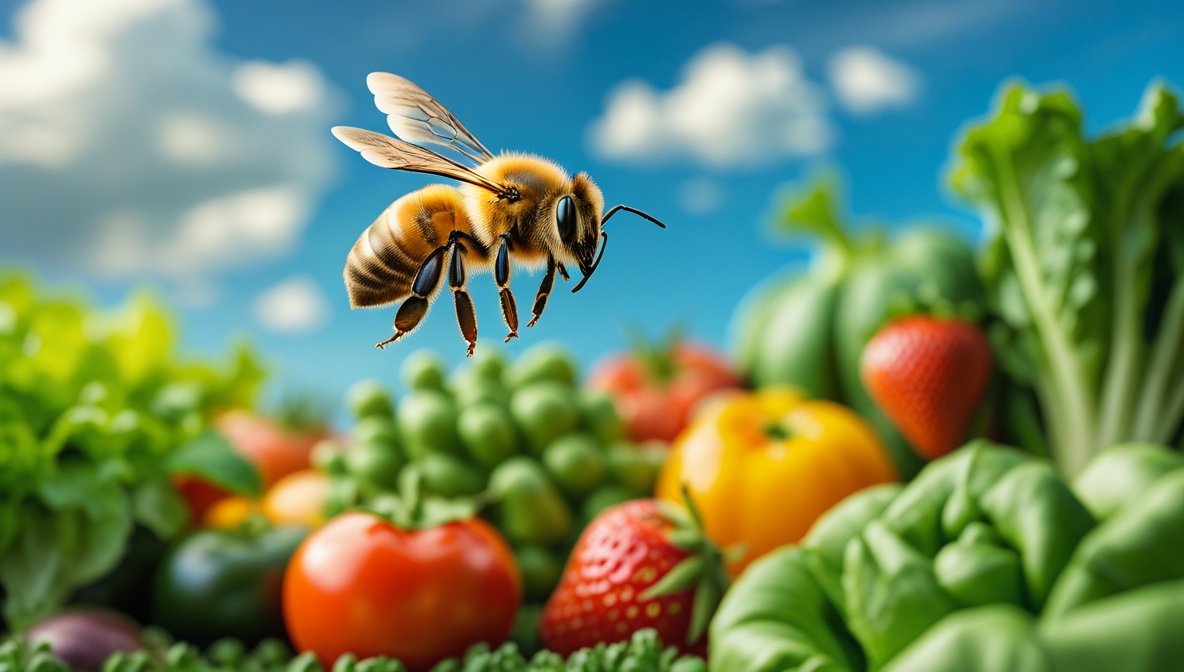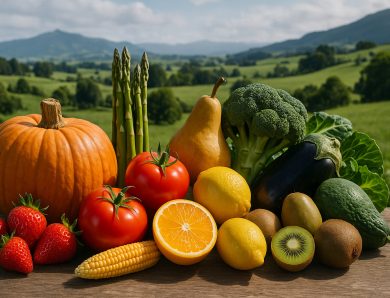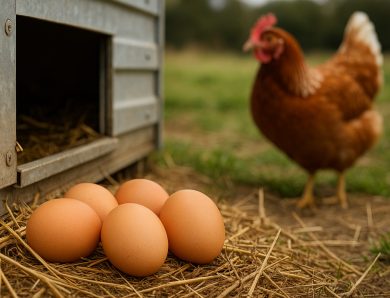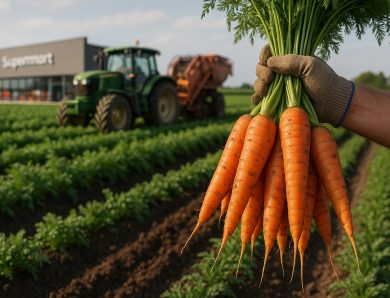
The Role of Bees in Our Food System
Bees contribute significantly to the production of food and the sustainability of agriculture. Their work supports the growth of many crops and promotes a healthy environment for both rural and urban settings. This article explains how bees affect our food system, highlighting their direct and indirect benefits.
Vital Contributions of Bees
Bees perform a function that many other insects do not: pollination. When they visit flowers, pollen sticks to their bodies and is transported to other blooms. This process ensures the reproduction of plants and the production of fruits, vegetables, and nuts. A diverse range of crops depends on bee pollination, making these insects essential for food security.
Key benefits of bee pollination include:
- Crop Yield Improvement: Many agricultural products, such as apples, almonds, and blueberries, require bees for pollination, resulting in larger yields.
- Genetic Diversity: The transfer of pollen contributes to the genetic variety of plants, leading to more resilient crops.
- Economic Value: Increased production from pollination boosts farmers’ incomes and supports local food markets.
The Impact on New Zealand Agriculture
New Zealand’s agricultural practices rely on natural pollinators like bees to maintain the vitality of orchards, vineyards, and vegetable farms. The country’s unique ecosystem benefits from the presence of both native and introduced bee species. The interplay between local flora and these insects creates an environment where crops flourish.
Farmers and food producers observe that healthy bee populations can lead to improvements in crop quality and overall farm productivity. This has encouraged initiatives that support the preservation and growth of bee habitats across the region. Sustainable farming practices, combined with protective measures, contribute to a stable supply of diverse produce.
Challenges Facing Bee Populations
Bee populations face several threats that can impact their ability to pollinate effectively. Environmental factors such as habitat loss, pesticide exposure, and climate change are among the challenges that need attention. The reduction in bee numbers may result in less effective pollination and, ultimately, lower crop yields.
Common issues affecting bees include:
- Habitat Reduction: Urban development and intensive agriculture reduce the natural habitats where bees thrive.
- Chemical Exposure: Pesticides used in farming can harm bees, reducing their numbers and their ability to work.
- Climate Variability: Shifts in weather patterns affect the flowering seasons of plants, which in turn disrupt the feeding cycles of bees.
Efforts to mitigate these challenges are ongoing, with many local organizations and farmers implementing practices that safeguard bee populations. By adjusting farming methods and promoting eco-friendly pesticides, there is hope that the decline in bee numbers can be reversed.
Celebrating and Supporting Bee Health
The role of bees in food production is celebrated not just in agricultural circles but also among the general public. World Bee Day (May 20) serves as a reminder of the importance of pollinators in our ecosystem. This day encourages communities to engage in activities that support bee conservation and raise awareness about the challenges these insects face. Educational events and local workshops help spread knowledge about sustainable practices that can assist in protecting bees.
How to Help Sustain Bee Populations
Consumers and producers alike can take steps to support bee populations. Small actions can collectively have a large impact. Consider these approaches:
- Plant Bee-Friendly Gardens: Adding native plants and flowers that provide nectar and pollen can create welcoming environments for bees.
- Support Organic Farming: Organic practices often reduce the use of harmful chemicals that affect bees.
- Advocate for Policy Changes: Encourage local governments to adopt regulations that protect natural habitats and promote sustainable agriculture.
- Educate Others: Share information about the benefits of bees and the need for conservation efforts.
In summary, bees play a pivotal role in our food system by pollinating crops, supporting biodiversity, and contributing to economic stability. Their influence is felt across agricultural sectors and local communities. Taking steps to protect these insects not only supports food production but also promotes a balanced ecosystem that benefits everyone.
By understanding the impact of bee pollination, we recognize that preserving these insects is integral to sustaining a resilient food supply for future generations.




No Comment